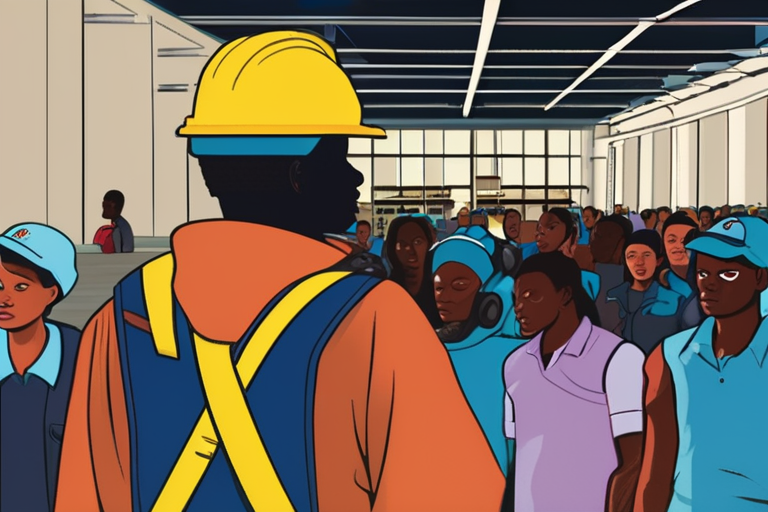Haitian Migrants Accused of Human Trafficking at JBS Meatpacking Plant
In a shocking turn of events, hundreds of Haitian migrants who flocked to the Rainbow Motel in Greeley, Colorado, for jobs at the JBS meatpacking plant have been accused of human trafficking and exploitation by the union representing workers.
According to an investigation by the Food Environment Reporting Network, Mackenson Remy, a Haitian migrant who created TikTok videos about job openings at the facility, inadvertently drew hundreds of his countrymen to the plant. The video went viral, and soon, many Haitians were arriving in Greeley, eager to start new jobs.
However, less than a year later, the union representing workers accused Remy and JBS of human trafficking and exploitation. "We've seen a pattern of behavior where workers are being recruited with false promises of good wages and working conditions," said a spokesperson for the union. "But in reality, they're facing long hours, low pay, and hazardous working conditions."
The Rainbow Motel, which housed many of these migrants while they started their new jobs, has been at the center of this controversy. The motel's owner, Mary Anne Andrei, denied any wrongdoing, stating that she was simply providing a service to migrant workers.
But critics argue that the motel's role in housing and recruiting workers for JBS raises serious questions about human trafficking and exploitation. "The fact that these migrants were being housed at a motel owned by someone who has ties to the company they're working for is a red flag," said a labor expert. "It creates a situation where workers are vulnerable to exploitation."
Background research reveals that JBS, the largest meat producer in the world, has faced criticism over its treatment of migrant workers in the past. In 2023, an investigation by the Food Environment Reporting Network found that JBS had been recruiting migrant workers from Haiti and other countries with promises of good wages and working conditions.
However, many of these workers reported facing long hours, low pay, and hazardous working conditions upon arrival at the plant. "We were promised $15 an hour, but we're making less than $10," said one worker who wished to remain anonymous. "And the working conditions are terrible – we're exposed to chemicals and machinery that's not properly maintained."
The union representing workers has called for greater transparency and accountability from JBS and its contractors. "We need to ensure that migrant workers are protected from exploitation and human trafficking," said a spokesperson for the union.
As the investigation continues, many are left wondering what the implications of this scandal will be for the meatpacking industry as a whole. Will it lead to changes in labor practices and regulations? Or will it simply result in more stringent enforcement of existing laws?
One thing is certain: the plight of these Haitian migrants has shed light on the darker side of the meatpacking industry, where migrant workers are often vulnerable to exploitation.
Additional Perspectives
"This scandal highlights the need for greater transparency and accountability in the meatpacking industry," said a labor expert. "We need to ensure that migrant workers are protected from exploitation and human trafficking."
"JBS has a history of exploiting migrant workers," said a spokesperson for the union. "It's time for them to take responsibility for their actions and treat their workers with dignity."
Current Status and Next Developments
The investigation into JBS and its contractors is ongoing, with many calling for greater transparency and accountability from the company. As the situation continues to unfold, one thing is certain: the fate of these Haitian migrants will have far-reaching implications for the meatpacking industry as a whole.
Sources:
Food Environment Reporting Network
Union representing workers at JBS meatpacking plant
Labor expert
Spokesperson for JBS
*Reporting by Motherjones.*



 Hoppi
Hoppi

 404news
404news

 Hoppi
Hoppi

 Hoppi
Hoppi

 Hoppi
Hoppi

 Hoppi
Hoppi











